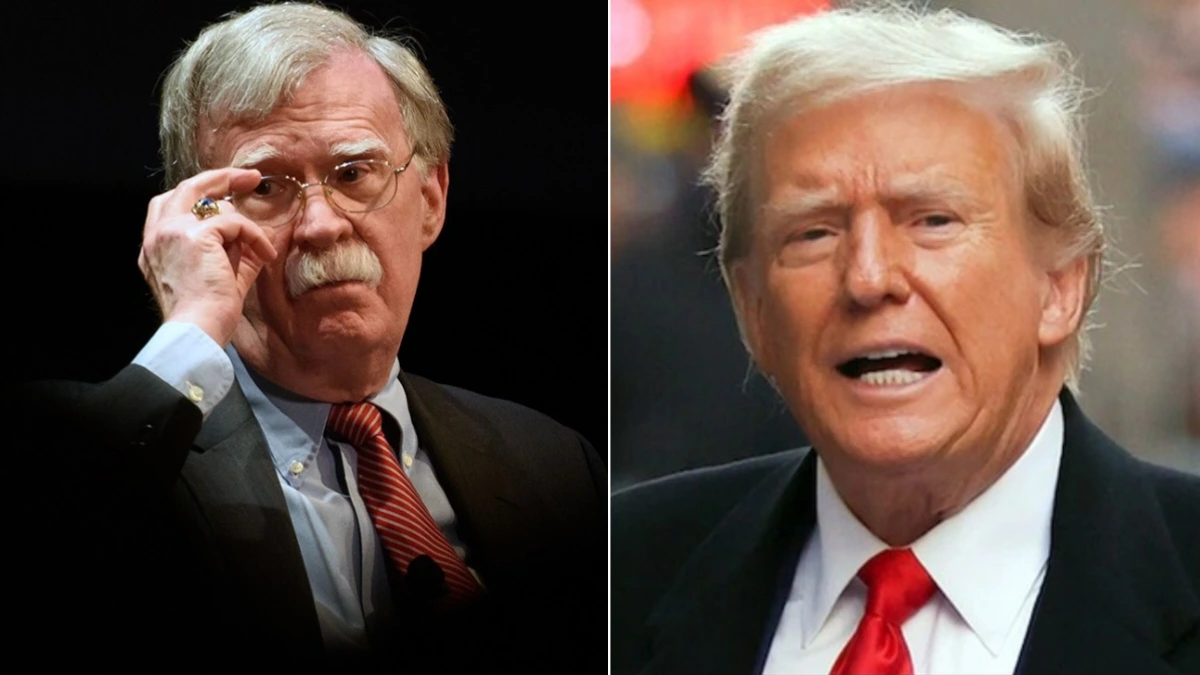GREENBELT, Md. — Former national security adviser John Bolton has been criminally indicted on 18 federal counts related to the alleged mishandling of classified national defense information, a development that deepens the political and legal tensions surrounding several former Trump administration officials.
A federal grand jury in Maryland charged Bolton, 76, with eight counts of transmitting national defense information and ten counts of unlawfully retaining it.
The indictment follows an FBI investigation that included searches of his home in Bethesda, Maryland, and his Washington office in August.
Prosecutors allege that Bolton stored and shared top secret information through personal emails and messaging platforms, in violation of the Espionage Act. Bolton, who served under President Donald Trump before being dismissed in 2019, denied wrongdoing and said he intends to fight the charges.
According to the 26 page indictment filed Thursday, investigators accuse Bolton of retaining and sharing sensitive intelligence involving US defense operations, potential foreign attacks, and confidential diplomatic relations.
The Justice Department said he used personal devices and communication apps to transmit restricted material.
Attorney General Pam Bondi announced the indictment, saying, “No one is above the law. The protection of classified information is essential to our national security.”
Bolton’s attorney, Abbe Lowell, said the allegations are “misguided and politically charged,” adding that the materials in question were “personal diaries” that contained “no classified information” and were shared only with family members.
“These are notes of a lifetime in public service, known to the FBI for years and handled appropriately,” Lowell said in a written statement.
The case makes Bolton the third prominent critic of Trump to face criminal charges in recent weeks, following indictments of former FBI Director James Comey and New York Attorney General Letitia James.
Legal analysts say the case against Bolton will test how far the Justice Department is willing to go in prosecuting former senior officials for document related offenses.
“This prosecution reflects an increasingly aggressive stance by the government in protecting classified material, regardless of the individual’s prior status,” said Martin Keene, a former federal prosecutor now teaching national security law at Georgetown University.
However, politically, the optics are challenging Bolton is a known Trump critic, and that complicates public perception.
Keene noted that the charges mirror aspects of earlier classified document cases, including those involving former military and intelligence officials.
“The DOJ will have to show that Bolton knowingly transmitted or kept information that was properly classified at the time,” he said.
Each count under the Espionage Act carries a potential sentence of up to 10 years in federal prison, meaning Bolton could face decades if convicted on all charges.
The FBI’s August search reportedly uncovered several printed pages and electronic files containing “sensitive operational details” from Bolton’s tenure as national security adviser. Some were labeled “Top Secret” or “NOFORN,” meaning they could not be shared with foreign nationals.
By comparison, other high profile document cases such as those involving former CIA and Pentagon officials have typically resulted in plea deals rather than full trials.
Analysts suggest that a similar outcome could emerge here, depending on the evidence and classified nature of the materials.
In Bethesda, where Bolton’s residence was searched, neighbors described the FBI raid as unexpected but calm. “It was surreal to see federal agents here,” said Richard Holden, a neighbor who has lived on the same street for over two decades.
“But I guess this shows that even people at the top can be held accountable.” A former intelligence official who reviewed declassification protocols for the government said the case highlights a recurring problem.
Officials often underestimate how serious even small lapses in classified handling can be, said the official, who spoke on condition of anonymity. “If Bolton stored sensitive data outside secure channels, that’s a violation, regardless of intent.”
Bolton, in his own statement, framed the indictment as political retaliation. “This is an act of retribution by Donald Trump, using the Justice Department as a weapon,” he said. “I look forward to defending my lawful conduct in court.”
Bolton is expected to surrender to federal authorities Friday in Maryland. His first court appearance will likely involve a plea of not guilty, followed by a bail hearing.
Legal experts predict the case will take months if not longer to proceed to trial, given the complexity of handling classified material in open court.
The proceedings could also test the Justice Department’s internal procedures for balancing transparency with national security concerns. Defense attorneys are expected to challenge the classification status of many documents, potentially triggering lengthy closed door hearings.
If the case goes to trial, it could set an important precedent for how similar violations are handled, especially as multiple high ranking officials from both major political parties face scrutiny over document security practices.
The indictment of John Bolton marks a significant chapter in the ongoing debate over the treatment of classified information and political accountability in Washington.
As the former adviser prepares to defend himself, the case underscores how the lines between personal record keeping, political rivalry, and national security continue to blur in America’s highest offices.
